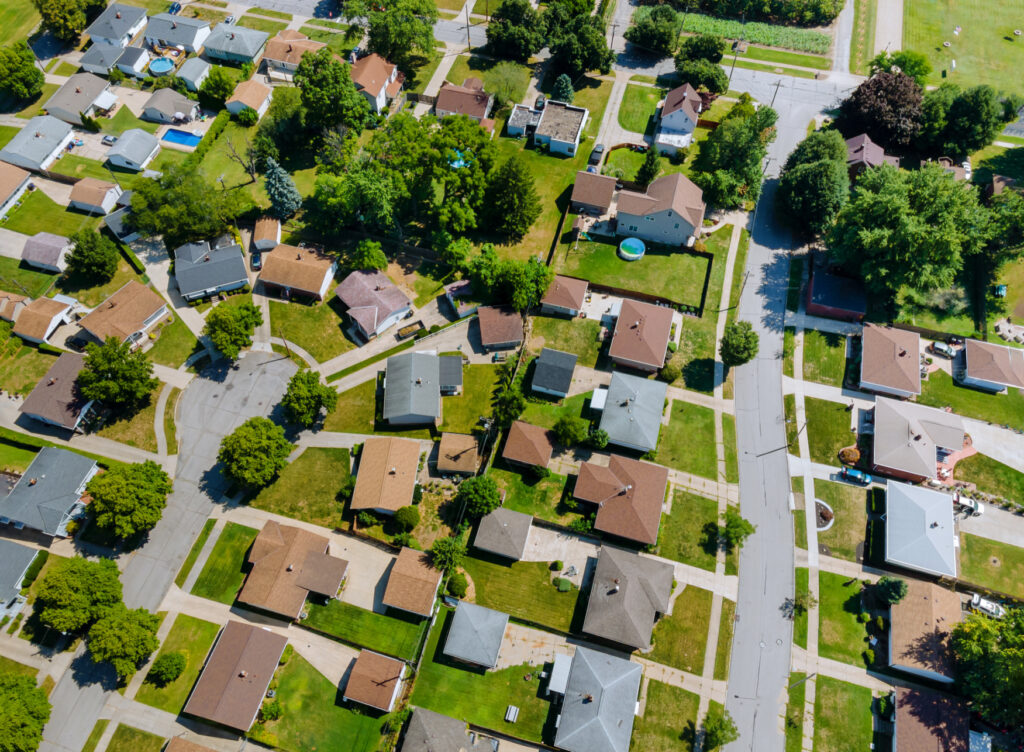Texas Housing Affordability Gets Boost With Governor’s New Legislation

In a bold move to address the growing housing affordability crisis, Governor Greg Abbott yesterday ceremonially signed three major pieces of legislation — Senate Bill 15, Senate Bill 840, and House Bill 24 — aimed at increasing housing supply, reducing regulatory barriers, and giving local governments new tools to meet demand across Texas.
“Housing affordability is one of the key issues on the minds of Texans today,” Governor Abbott said at the Texas Capitol. “Thankfully, we have taken large steps to make the American dream of affording a home a reality. Thank you to all the lawmakers and housing advocates who continue working to make Texas the best place to live, work, and raise a family.”
Surrounded by key legislative champions including Senator Paul Bettencourt, Senator Bryan Hughes, Representative Gary Gates, Representative Cole Hefner, and Representative Angelina Orr, Abbott praised the legislation as a game-changer in the fight for housing access.
Senate Bill 15: Smaller Lots, More Homes
Sponsored by Sen. Bettencourt and Rep. Gates, SB 15 takes aim at one of the most commonly cited hurdles to affordable housing — outdated zoning laws and large-lot mandates. The new law bars cities from requiring excessively large lot sizes on unplatted tracts of five acres or more, allowing developers to build on smaller parcels. It also limits municipalities from imposing restrictive building codes on small lots under 4,000 square feet — including mandates for multiple parking spaces, covered garages, and certain setback and wall articulation requirements.
This reform unlocks new pathways for denser, more affordable housing in fast-growing cities like Austin, Dallas, and Houston while maintaining local oversight of issues like flood control and aquifer protection. The bill gives housing organizations the right to take legal action if cities fail to comply.
Senate Bill 840: Converting Commercial to Residential
SB 840, authored by Sen. Hughes and sponsored by Rep. Hefner, opens the door for mixed-use and multifamily housing in areas currently zoned for commercial, office, or warehouse use. As Texas cities face a shortage of developable land, this legislation allows for the conversion of underutilized commercial space into housing without jumping through expensive zoning hoops.
Specifically, the law prohibits cities from requiring rezoning or special permits to convert qualifying buildings — including those five years or older — into residential use, so long as 65% of the structure will be used for housing. The law also bans additional impact fees, design requirements beyond the International Building Code, or parking expansions unless already mandated.
In practice, this means that empty strip malls and aging office buildings could soon be transformed into apartments, lofts, and condos, particularly in urban areas struggling with housing shortages.
House Bill 24: Streamlining Zoning Reform
The third bill, HB 24 by Rep. Orr and Sen. Hughes, reforms the state’s “valid petition” protest process — often called the “tyrant’s veto” — that historically allowed small groups of property owners to block zoning changes, even those broadly supported by the community.
Under the new law, proposed zoning changes that increase residential capacity will no longer require a supermajority vote in many cases if opposed by nearby property owners. It also sets clear rules for public notice and ensures that broader zoning reforms, such as overlay districts or new city-wide maps, are not subject to the same procedural delays.
Supporters say this bill will make it easier for local governments to implement affordable housing plans without being stymied by procedural roadblocks.
A Shift in Texas Housing Policy
Taken together, these bills mark a significant shift in Texas housing policy. They reflect growing bipartisan recognition that affordability is not just a big-city issue but a statewide concern affecting working families, young professionals, and retirees alike.
By removing outdated zoning restrictions, encouraging adaptive reuse of commercial properties, and streamlining local approval processes, Texas lawmakers have taken a proactive stance on a problem facing cities across the nation.
All three laws take effect September 1, 2025.
RECENT










BE THE FIRST TO KNOW
More Content By
Think American News Staff











